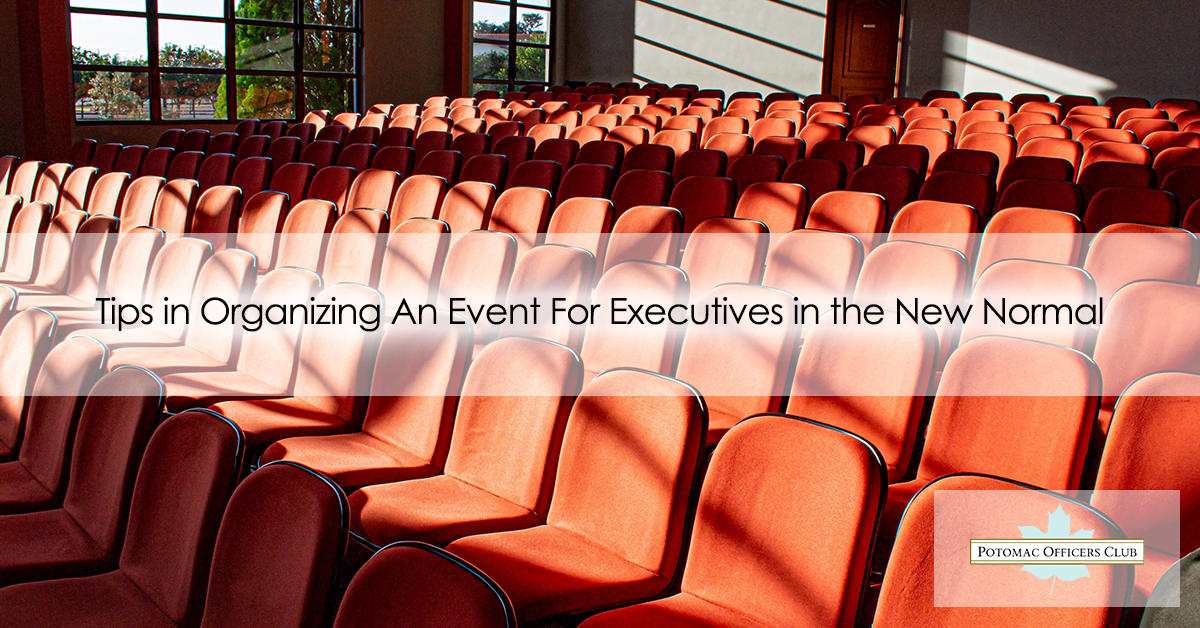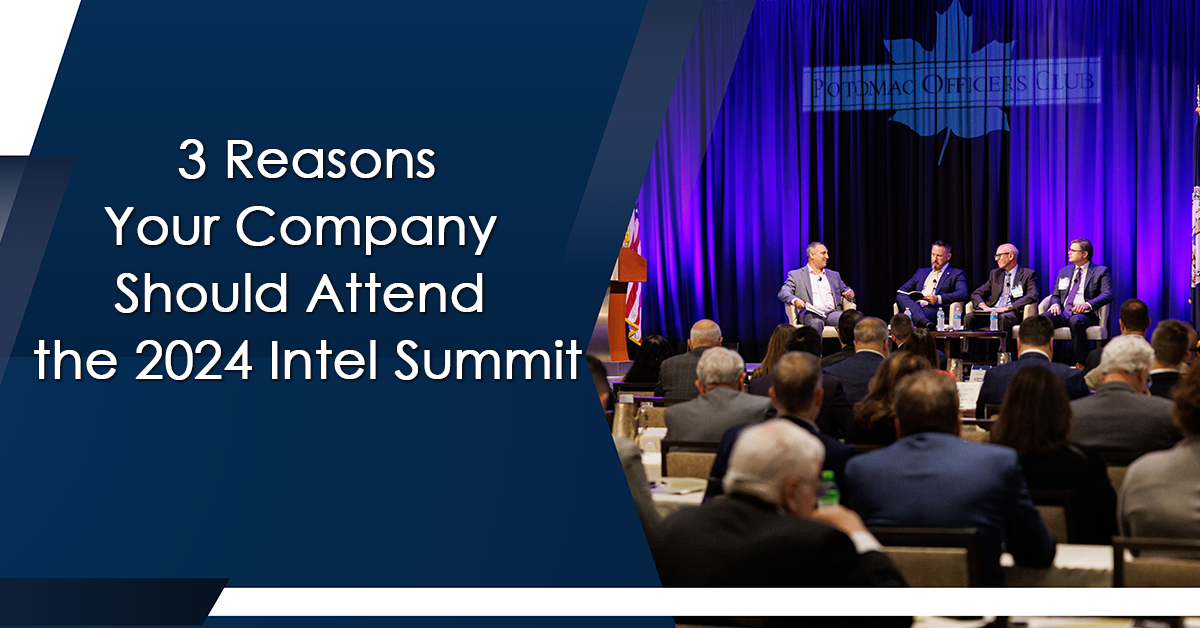
Tips in Organizing An Event For Executives in the New Normal
As the world continues to recover from the devastating effects of the COVID-19 pandemic, industries have reinvented their ways to adapt to the New Normal. One of the industries that were hit the hardest in this onslaught of the pandemic is events management. Since this line of business banks on face-to-face gatherings, the limitations imposed by the global health emergency brought the industry to a screeching halt. It doesn’t matter whether it is a simple gathering or a highly-anticipated event—they were either canceled or postponed.
With COVID-19’s massive disruption in the industry, event planners were left with only two choices: sink or swim. Although changing the way their business operates to survive in the post-pandemic era is difficult, new technologies are now readily available to help them ease back into the industry.

Table of Contents
What is a Hybrid Event?
When the COVID-19 was still at its peak, organizing virtual events became part of the New Normal. But with the government mobilizing its resources to help the nation recover, event organizers are now given a chance to host limited face-to-face events.
With the organizers’ efforts to integrate virtual and in-person events, they have found a way to merge the best of both worlds and thus, giving rise to a new experience: hybrid events.
Although hybrid events have been around for quite some time, the tools and skills needed to execute them perfectly were only made accessible during the pandemic.

What are the things you should consider when organizing a Hybrid Corporate Event?
As if organizing a corporate event before is not challenging enough, planning for one now becomes more complicated than ever. Event planning in the New Normal requires event organizers to take a different approach to execute events flawlessly. So even though the country is already easing its COVID-19 restrictions, organizers should still consider these factors that can impact your planned events.
Venue
Before the pandemic, your budget, capacity, and accessibility are the top factors you should consider when scouting for an event venue. But, choosing an event location in the New Normal means that you should look for a venue that is not only spacious but also well-ventilated.
To house a certain number of attendees, you now have to allocate a bigger space for social distancing. Although hosting a hybrid event may mean that your in-person attendees will be fewer than usual, you should still ensure that your guests are adequately distanced from each other.
Event logistics
With different health restrictions and policies in place to ensure the health and safety of your guests, you should carefully plan out the logistics for your event, from catering to the event layout—and more.
Implementation of health and safety protocols
Depending on which state you are hosting your event, the health and safety policies being implemented vary most of the time. To avoid any hitches during the event, make sure you are updated with the latest health guidelines.
Getting your events insured
Organizing an event in the New Normal means being prepared for anything since there are no guarantees on how COVID-19 will affect the world tomorrow. So to protect your investments from unexpected cancellations and sudden emergencies, have your event insured.
Budget
Since there are a lot of considerations to take note of, you should be prepared for the costs it will incur as well.

How can you organize a corporate event in the New Normal?
Now that we are in the New Normal, it is about time to embrace change—and seek opportunities to thrive in it. Here are ways to boost the success of your corporate event in the post-pandemic era!
Planning for the event

1. Define your event’s goals
Before committing yourself to the effort, you must first set clear goals for your corporate event. Your goals will be your shining beacon that will guide your efforts efficiently and effectively.
When setting your event goals, you have to make sure that it follows the SMART formula: Specific, Measurable, Actionable, Relevant, and Timebound. Your goals should specify what you want to achieve within a reasonable timeframe. Then after that, you can set your event objectives or the tasks you need to fulfill to achieve your ultimate goal.
For example, you are in charge of organizing your company’s annual government contractor conference. Here is an example of how your goals and objectives will look like:
Goal: Have a 15% increase in ticket sales compared to the previous year.
Objectives:
- Implement a tiered event ticket pricing structure.
- Invite three renowned industry thought leaders as event speakers.
- Reach at least 1,000 daily impressions on each of your event’s social media pages.
There are several ways you can achieve that sample event goal. Offering exclusive promos and discounts with a tiered pricing structure, enticing your audience with the possibility to learn from industry experts, and effectively promoting your event on social media might be the most effective methods among all.

2. Decide on a budget
Deciding on your event budget is a crucial step in your event’s pre-planning stage—especially now when the health restrictions and the crowd’s general fear of the pandemic may affect the success of your event.
Your event budget is your lifeline because it will directly affect all aspects of your event planning strategy: from inviting venerable guest speakers to acquiring the best tools for your hybrid event.

3. Strategize your logistics
Event planning in the New Normal requires you to be on top of things more than usual. With several elements to consider, it is essential to have a solid technical and logistical strategy to ensure the seamlessness of the event.
Here are some of the vital logistical aspects of event planning that you should take note of:
Venue
Securing a suitable venue that is up to par with the current health and safety standards can be pretty challenging and expensive, especially during these precarious times. Additionally, you should also consider insuring your venue to protect your organization from any unexpected emergencies that may arise.
Travel and accommodation
A huge number of the population are still afraid of traveling—or even going outside. So scout for the best travel and accommodation options that will ensure the health and safety of your guests.
Food
When planning hybrid corporate events in the New Normal, you should seek catering services are dedicated to protecting your guests’ health and welfare. Fortunately, caterers now offer individually packaged meals instead of the usual buffet to preserve the food from contamination.
Staffing
An event’s success is a team effort. So don’t forget to allocate a portion of your budget for your staff and personnel. Calculate how many people you’ll require to keep your event fully functional on all fronts—live and virtual.
Paperwork
You should be meticulous in managing the logistics for corporate hybrid events, from nailing down all the necessary permits and paperwork to procuring all the digital tools to broadcast your event. Check every detail and see how much it will cost you.
Digital tools
And of course, don’t forget to include the procurement of your digital tools for your hybrid corporate event. From your streaming devices to your virtual event platform, you should start acquiring these tools as early as possible.

4. Secure your venue
When choosing your event venue, you should consider how much space your guest will need for social distancing. Your guests should be comfortably far apart from each other to protect them from any viral transmission. Additionally, you have to ensure that your chosen venue is well-ventilated to avoid any viruses from stagnating in the air.
According to the World Health Organization, there are specific settings where the COVID-19 virus is more transmissible. Here are the three C’s that best describe it:
- Crowded places
- Close-contact settings where people converse closely with each other
- Confined spaces with poor ventilation
To ensure that your selected event venue is safe for your guests, don’t forget WHO’s Three C’s!

5. Get updated with the latest health restrictions and policies
Wear a mask and observe social distancing are some of the most common health and safety directives to protect the populace from contracting COVID-19. But as a corporate event planner, you shouldn’t settle on just learning these general health protocols alone.
Depending on where your event will occur, there will be different policies and regulations to safeguard the guests’ health and wellness. So as part of your event planning strategy, you should always be up to date with the latest COVID-19 protocols, especially if you aim to host a large-scale event.

6. Establish a strong event branding
You’re not the only event organizer out there who wants to host a successful corporate event. To rise from the sea of event planners, develop a strong branding strategy for your event.
To strengthen your event’s brand image, try doing these:
Decide on an event name
Your event name should be catchy yet straightforward. In just a glance, your audience should be able to get an idea of what your event will be about.
Create a unique logo
Having a dedicated logo aside from your organization will help solidify your brand’s identity. Additionally, creating event merch will be easier once you have a logo for your event.
Choose your event theme
The theme of your event is what will tie up all of your content together. It will serve as a guide for your speakers when crafting their talk, and it will also help set expectations for your event attendees. Additionally, your event theme will also be instrumental in creating buzz. So when choosing your theme, it should be aligned with your event goals and objectives while staying relevant to your target audience.

7. Plan your program
Since you are planning a hybrid event, you should look for ways to integrate both its live and virtual elements to create a novel experience. You should strive to balance both its online and in-person aspects during your planning process. For your event to succeed, you must realize that they require a different approach.
It is a common misconception that when organizing hybrid events, all you have to do is host a live event like what you would typically do then stream it live online—it’s not. You should understand that you should engage your live and online audience differently with hybrid corporate events.
For example, during your event speaker’s Q&A session, you can have your host talk directly with your online audience to ask them to tweet their questions using the event’s official hashtag. While the speaker answers the live audience’s questions, someone from your team can collate all online questions so you can relay them seamlessly to your speaker.
This way, you managed to address the questions of your live and online audience without making the other one feel left out.

8. Secure sponsorships
Although your corporate event is already sponsored financially by the company organizing company, you can seek in-kind sponsorships instead, especially if you are managing large-scale events.
Organizing hybrid corporate events open a lot of sponsorship opportunities. You can look for partners who can sponsor your event’s streaming platform, technical devices, and even event merch that you can use as prizes to boost your engagement online. Keep an eye out for suitable sponsors and prepare your sponsorship proposals while you are at it.

9. Organize a team
To mount a successful corporate event, you have to have an experienced team supporting you along the way. As you go along with your planning process, you should also enumerate the staffing to execute every task.
Then once you have identified the needed roles, you should now assemble a team of experienced event staff to fill in the ranks. And since you are organizing not just the usual live event but a hybrid corporate event, it is essential to bring in someone adept at handling all the technicalities needed to execute your event, particularly your chosen online event platform.

10. Craft an effective marketing plan
How can your target audience know that you are mounting a hybrid corporate event if you don’t promote it, right? So on your event budget, don’t forget to include funding for your event marketing plan.
When crafting your marketing plan, don’t be afraid to get creative! Use your event goals and theme to guide your promotional efforts and harness your social media networks to build brand awareness and reach more people.
During the event

11. Monitor if health and safety protocols are being observed
As an event planner, nothing should be more important than ensuring your guest’s health and safety. Before your live event commences, ensure that your assigned health marshal monitors whether attendees follow the mandated health protocols. Additionally, have your event host remind your guests about your safety regulations regularly.
12. Prepare a Plan B in case of technical difficulties
Since a large part of your event is dependent on tech, you should be prepared for any technical hiccups that may occur during your event. Formulate a backup plan with your team to ensure the smoothness of your event.
13. Maximize social media engagements
You can stay connected with your network on your social media channels no matter where you are. And that is why social media is one of the best ways you can bridge the gap between your live and online guests.
Feeling lost on how you can encourage your audience to engage online? Check out these ideas:
- To generate hype before the event start, ask your in-person attendees to take a selfie at your designated photo booth, then have them upload it on social media by tagging your event’s handles. For your remote participants, you can ask them to take a selfie with their setup as they wait for the event to start.
- As the event rolls on, have your event host ask both of your live and remote audience to share their thoughts online by tagging your event’s social media handles.
After the event

14. Evaluate attendee engagement and participation
Post-event evaluation is one of the most important things you should not miss in your corporate event planning checklist.
Performing post-event evaluation lets you see how well your event has performed within your expectations. Using the event goals and objectives you have laid out earlier during your planning stages, you can see whether your event has achieved your success metrics or not.
To give you a gist on how you should conduct an effective post-event evaluation, here is what you need to do:
Send out your post-event survey to your target groups
As soon as the event has concluded, send your post-event survey forms to your audience, sponsors, and staff members. The fresher their memory of the event is, the more accurate their feedback will be.
As for your post-event survey forms, you should consider using these digital survey tools available instead of the traditional paper and pen. This will make data gathering easier and lessen the person-to-person contact as well.
Analyze your social media engagement metrics
When tracking your social media metrics, your timeframe should start on the day you have first posted your event’s promotional materials online then end after the event has concluded. And since you have integrated the use of social media in your program flow, you now have access to engagement metrics not only during your promotional period but also on the event itself! Using those real-time metrics, you can see how much your live and remote audience engaged with the event. Additionally, you will gather insights regarding your audience’s experience.
Review your financial statements
Even if your event is not geared toward driving profits, you should still be meticulous in handling your event’s financial statements to calculate your earnings and expenses accurately. As early as your pre-planning stage, you should take greater care in handling every receipt and proof of transaction of the event.
To know more about post-event evaluation, check out this comprehensive guide.

15. Establish an on-demand video library
If your event guests are located in different time zones, it would be best to have a digital library to watch the event on-demand. Since not everyone can attend your event if they live in a different region, you can offer them exclusive access to your event’s sessions so they wouldn’t miss out on anything.

16. Publish video highlights
Your corporate event’s social media pages will not be rendered useless once the event has concluded. In fact, you can still use it as an avenue to post your event’s highlights. Post videos, create graphics about your speaker’s quotable quotes, and publish more event-related content to engage more people.
Although your event has ended, this doesn’t mean that you should stop promoting. You can use this time to make your attendees remember how good their experience was—or even reach those who could not attend to pique their interest! This move will help you if you plan to hold this event again the following year.
Category: Articles




